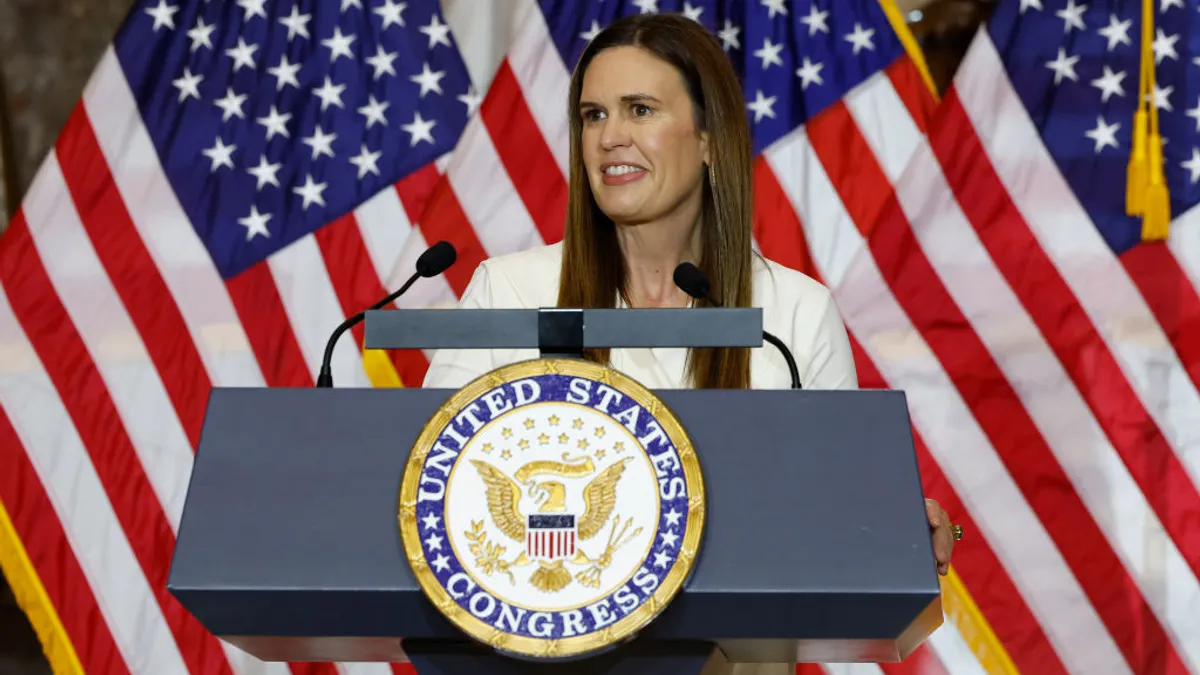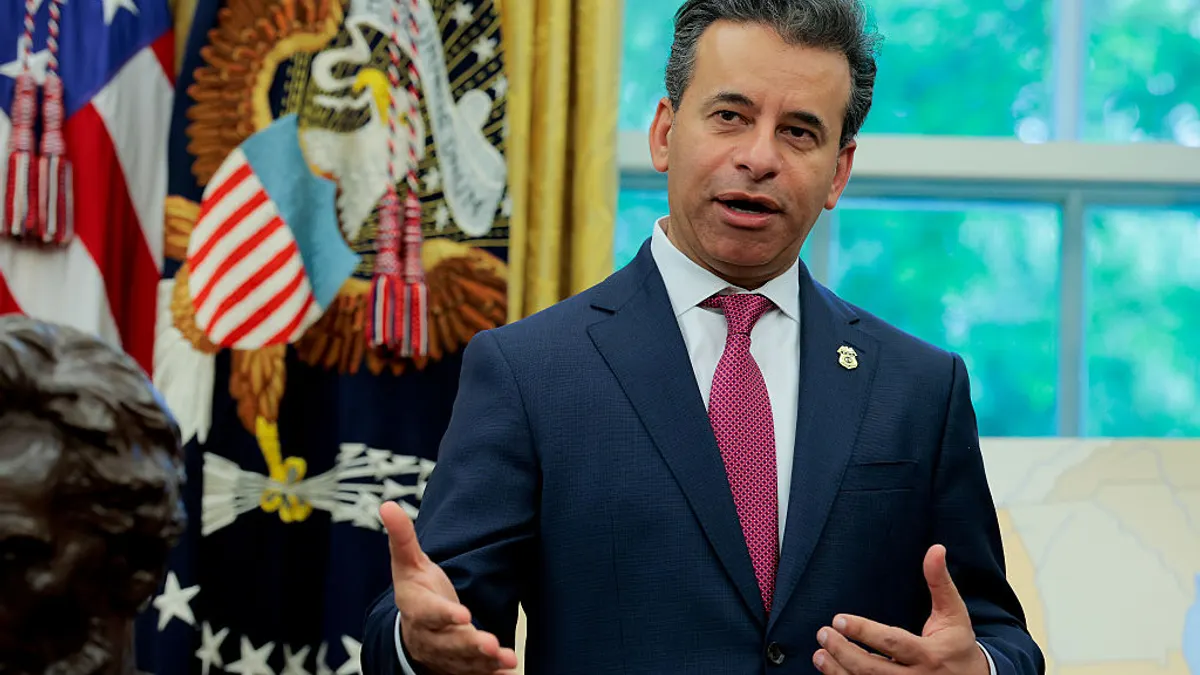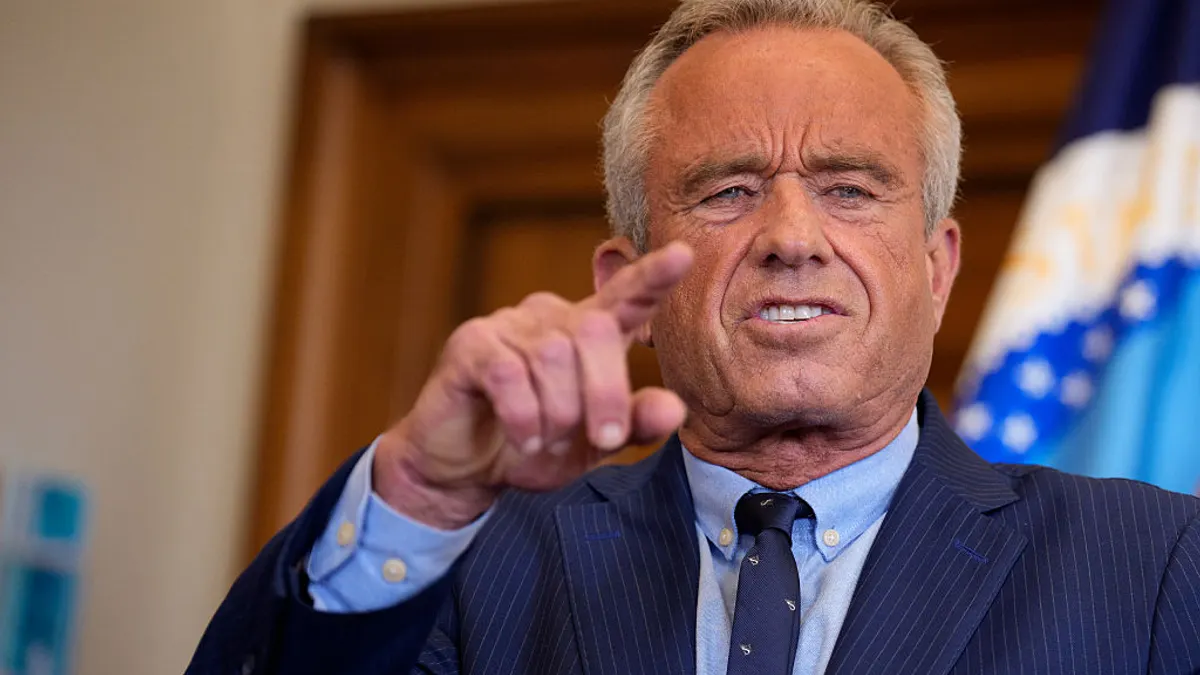Pharma’s middlemen are under fire. Known as the negotiators between health plans, pharmacies and drug companies, pharmacy benefit managers are currently entangled in a national conversation about reform.
The pharma industry has long blamed PBMs for rising drug prices, pointing to opaque rebate and profit structures, and proposed policy shifts could take them to task.
Congress has been weighing PBM reform for several years, but “nothing has happened,” according to Danny Sanchez, CEO of the PBM EmpiRx Health. At the end of 2024, Congress seemed poised to pass reforms as part of a short-term federal funding bill, but lawmakers punted the issue and left the changes on the cutting room floor.
Now, lawmakers are once again toying with the same efforts in the Republican-led budget bill, including a prohibition on spread pricing and increased reporting requirements for transparency. But the current political environment, as well as ongoing uncertainty around the budget bill’s passage, have made industry insiders like Sanchez skeptical that PBM reforms will happen this year.
“The historic polarization in Congress and our overall political system is probably too large a barrier for PBM reform to surmount in the foreseeable future,” Sanchez said. “That said, we are still optimistic that some level of PBM reform will ultimately pass; it’s just looking doubtful that this will happen in the near future.”
Sanchez, who leads an “alternative PBM” recognizes some of the problems in the current PBM environment. Drug prices and what some states describe as anticompetitive behavior have prompted calls for action.
“The fact is that state lawmakers are hearing directly and regularly from their constituents about the unfair, self-dealing business practices of the largest PBMs,” Sanchez said. “This is forcing state legislatures to act, especially since no real progress has been forthcoming on the federal level.”
Rather than wait for a federal solution, states have been tackling PBM reform themselves this year.
“Against the background of several failed attempts to pass legislation that would restrict business practices of PBMs, states are increasingly taking the matter into their own hands,” said Michael Abrams, managing partner at Numerof and Associates.
Last year, 20 states were considering regulating PBMs through legislation. Now, all 50 have bills that would impact PBMs or drug benefits, Abrams said. The rapid increase year over year reflects the stalemate in Congress on meaningful PBM reforms, while state governments are facing unhappy constituents complaining about PBM actions, he said.
One state in particular has stood out for its strong stance.
Arkansas’ ban
Arkansas became the first in the nation to prohibit PBMs from simultaneously owning pharmacies after Governor Sarah Huckabee Sanders signed the ban into law in April. She also called out PBMs for practices that “abuse customers, inflate drug prices and cut off access to critical medications.”
The nation’s three largest PBMs — CVS Caremark, OptumRx and Cigna’s Express Scripts — control roughly 80% of the market and operate their own pharmacies.
“PBMs have increasingly taken advantage of their position as price negotiators to benefit pharmacies they own and operate by distorting the market and crushing independent pharmacies,” Arkansas Attorney General Tim Griffin said in an April statement. “And Arkansas consumers lose because we pay higher prices for drugs we rely on every day.”
PBMs immediately shot back, with CVS and Cigna separately suing the state last month. The PBM lobbying group Pharmaceutical Care Management Association also filed a suit last week, claiming Arkansas’ ban is unconstitutional and would impact accessibility due to pharmacies closing their doors.
CVS said it would be forced to close 23 locations by Jan. 1, 2026,. The healthcare giant also said the law would result in Arkansas paying more for prescription drugs. But even without CVS, other pharmacies could amass more market share.
“Some of the dire predictions make the assumption that no other entities will take action to fill market voids that may result, which seems unlikely,” Abrams said.
More states are considering similar laws, and many support a prohibition across the country. A coalition of 39 state and territory attorneys general sent a letter to congressional leaders in April urging them to bar PBMs from owning or operating pharmacies through federal legislation.
“The move by Arkansas appears to have encouraged other states to do the same,” Abrams said. “Since that law was enacted, similar provisions were introduced or amended into bills in Indiana, New York, Texas and Vermont.”
Massachusetts, Missouri, North Dakota and Utah have also enacted reforms related to PBM contracts in the first half of 2025.
Reforms in motion
Elsewhere, more reforms are surfacing.
New York, often a bellwether for policy shifts, is looking at requiring PBMs to reimburse pharmacies using the national average drug acquisition cost rate, known as NADAC pricing. This replaces the average wholesale price benchmark, which is more opaque. The Montana legislature is also considering NADAC pricing.
“It can lead to more transparency in drug pricing, streamline reimbursement processes and potentially reduce costs for plan sponsors,” Abram said of NADAC pricing. “For PBMs, this means the potential for reduced profit margins, as they are no longer able to manipulate pricing through spread pricing practices. For consumers, NADAC pricing would serve as a more accurate benchmark for drug pricing, potentially leading to lower costs for consumers and greater accountability in the drug supply chain.”
New York Governor Kathy Hochul is also pushing for the state to become the first “to require PBMs to publicly disclose the aggregated dollar amount of rebates they receive from drug manufacturers” through her budget proposal, according to a brief from Mintz.
Reforms are also on the table in all 50 states, according to Optum, and the state-led approach is adding pressure for federal action.
While PBMs are under scrutiny and facing new laws, pharma still suffers from a poor reputation and is facing several pricing policy issues of their own. For example, pharma lobbyists are pushing for a fix to the Inflation Reduction Act’s pill penalty that the industry says disincentivizes small molecule drug development. However, the fix is notably missing from the budget bill that includes other IRA revisions.
“There has been a lot of finger-pointing by both the pharma industry and traditional PBMs,” Sanchez said. “Each regularly blames the other for rising prescription drug costs, and the anticompetitive, self-dealing business practices that harm community pharmacies, plan sponsors, and patients. The truth is that they both have their share of the blame for these problems.”





















